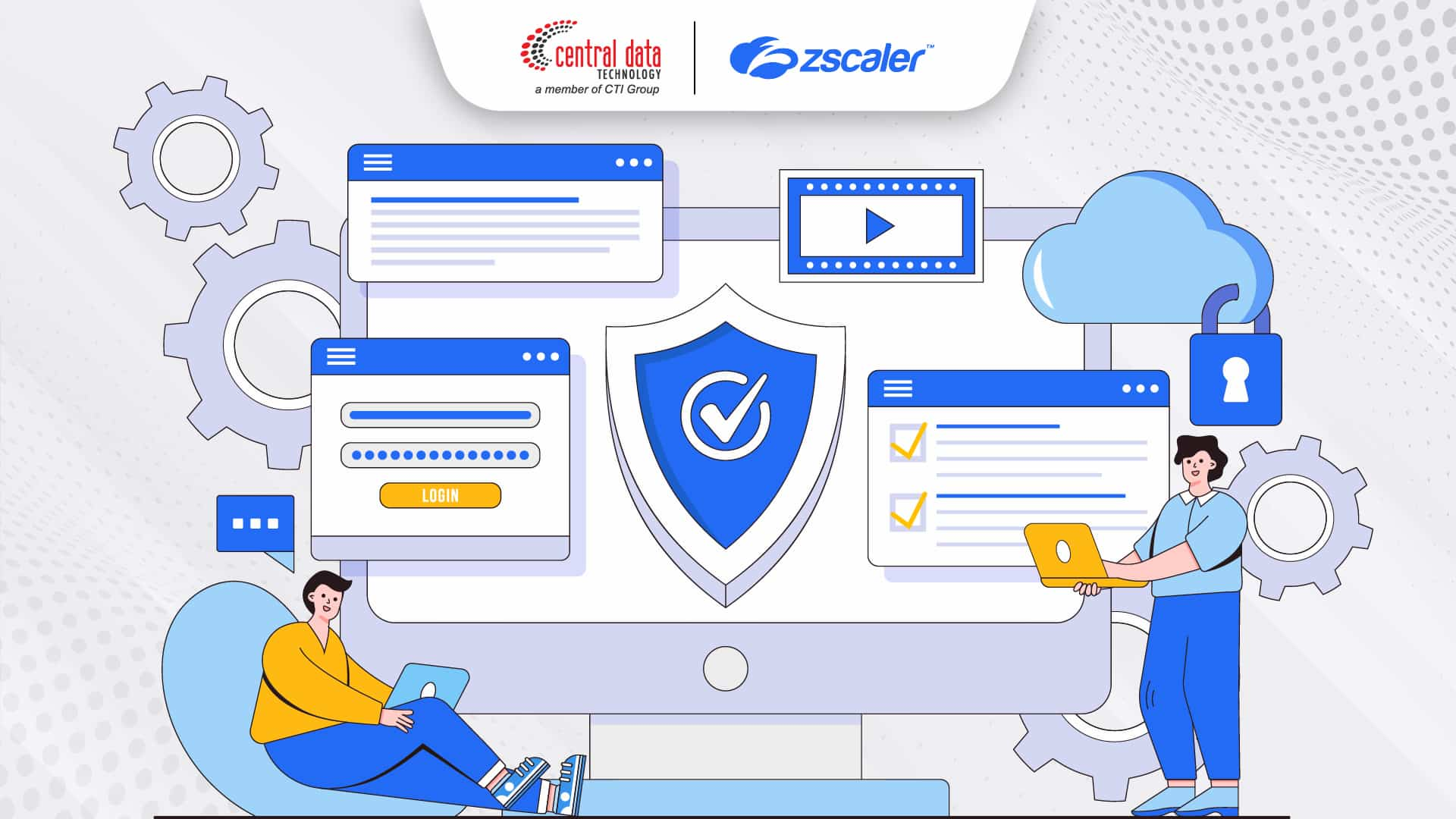
We rely on browsers every day, whether for work, study, or simply entertainment. However, few realize that browsers are also one of hackers’ favorite entry points. From phishing scams and malicious ads to hidden malware, threats can sneak in with just a single click.
Fortunately, there’s an effective solution to close this security gap: Remote Browser Isolation (RBI), a cybersecurity technology that keeps you safe online while ensuring productivity is not disrupted.
What is Remote Browser Isolation?

Remote Browser Isolation (RBI) is a web security technology designed to protect users from online threats such as malware, phishing scripts, and other harmful content while browsing.
Unlike traditional browsing, RBI doesn’t run web sessions directly on your device (like a laptop or PC). Instead, everything happens in a secure, remote server. When you visit a website, the content is processed in that server, and only a safe visual stream (pixel-based) is sent back to your screen, without exposing your device to active code that could carry risks.
This means you can interact with websites as usual, but without worrying about infections sneaking into your device. So why is this technology such a game-changer? To answer that, let’s first look at the challenges of browsing in today’s cloud-driven world.
Why is Remote Browser Isolation Important in the Digital Era?
Today, almost every task we do is connected to the internet, as more applications and data have moved to the cloud. Productivity has certainly gone up but so has the risk of cyberattacks.
Threats like phishing, malicious ads, clickbait laced with malware, and even browser-based trojans can easily slip in through everyday browsing sessions. Once a browser connects to a dangerous site, attackers may gain a foothold not just on the device but across the entire company network.
Traditional defenses such as firewalls or website blocking can help, but they aren’t foolproof. Blocklists often can’t keep up with brand-new threats, while allow lists tend to frustrate users by being too restrictive.
This is where Remote Browser Isolation (RBI) steps in. By running browsing sessions inside a sandboxed environment in the cloud, RBI stops ransomware, malware, and other threats at the server level, before they ever touch your company’s network.
But how exactly does RBI block these threats?
How Does Remote Browser Isolation Work?
RBI creates a secure, isolated environment whenever a user accesses risky web content. Instead of being processed directly on your device, the content is handled in a remote cloud server. What gets delivered back to the user is only a safe, visual stream (pixel-based), not the active code that could be dangerous.
Here’s how it works in practice:
- A user tries to open a potentially harmful website.
- The system checks the requests against the company’s security policies.
- If flagged as risky, a remote, isolated browser session is launched on the server.
- The content loads inside that secure session, and only the visual output is sent to the user, no malicious code makes its way through.
The result? Any hidden malware is contained and never reaches the user’s device or the corporate network.
So, what kinds of threats can RBI stop? Let’s break it down.
Types of Threats Remote Browser Isolation Can Stop

Every website or online app is built on HTML, CSS, and JavaScript. The catch? JavaScript is also one of the most common tools cybercriminals exploits. Some of the most frequent browser-based attacks include:
- Drive-by downloads: malware that installs itself automatically just because you opened a web page, especially if your browser isn’t updated.
- Malvertising: online ads that look completely normal but secretly contain malicious code, redirecting you to dangerous sites.
- Clickjacking: deceptive pages that trick users into clicking on hidden links or downloading malware without realizing it.
With RBI, risky content can still be displayed to the user, but it never directly touches the endpoint. That way, the attack chain is cut off before it even starts.
But stopping threats is only half the story. For businesses, security needs to be consistent across every digital activity. That’s where the Zero Trust model comes in, and RBI plays a key role in making it work.
Read More: 90% Business Fail to Recover from Crisis without Business Continuity Planning
The Role of Remote Browser Isolation in a Zero Trust Architecture
The idea behind Zero Trust is simple: trust no one and nothing until it’s verified. Every user, device, and activity is treated as potentially risky.
RBI naturally fits into this approach by:
- Isolating browsing sessions so sensitive data never leaks to risky sites.
- Extending Zero Trust to all internet users, SaaS platforms, and even internal apps.
- Integrating seamlessly with cloud security platforms to deliver protection that’s flexible, scalable, and fast.
Some major vendors have already combined Zero Trust and RBI into a single cloud-delivered solution. One standout example is Zscaler’s RBI, which is built directly into its cloud based Zero Trust platform.
Zscaler Remote Browser Isolation: A Smarter Way to Browse Safely
Zscaler Browser Isolation is part of the Zero Trust Exchange; a cloud delivered Zero Trust platform. This service keeps users and devices completely isolated from active web content, stopping threats like zero-day vulnerabilities, ransomware, malicious plugins, and even accidental data leaks, all without disrupting productivity.
Here’s how it works: every piece of web traffic passing through the Zero Trust Exchange is processed in real time. Instead of delivering the raw content, Zscaler transforms it into a safe, visual-only stream before it reaches the user. Think of it as an air gap between you and the internet, your browsing stays smooth, but far more secure.
Key Benefits of Zscaler Browser Isolation:
- Safer browsing: AI-powered Smart Isolation blocks zero-day attacks and web-based threats.
- File Isolation: Documents are automatically rendered as safe PDFs to neutralize malicious macros.
- Generative AI protection: Prevent sensitive data leaks via AI prompts and restrict risky actions like upload/download.
- Boosted productivity on BYOD: Secure access to SaaS apps and internal tools from personal devices.
- A simpler alternative to VDI: Run cloud-based browsers without agents easier to deploy, more cost-effective.
- Faster M&A integration: Onboard new employees securely with instant access to critical applications.
Secure Your Business Browsing with Zscaler at CDT
Don’t let browser-based attacks become an open door to your business systems. With Zscaler Browser Isolation, every connection to the internet, SaaS platforms, and internal applications remains safe, without slowing down your teams.
As an advanced Zscaler partner in Indonesia, Central Data Technology (CDT), a subsidiary of CTI Group, is here to deliver trusted Zero Trust Security solutions tailored to your needs.
From consultation and deployment to ongoing support, our team will guide your digital transformation journey, ensuring it stays secure, efficient, and future-ready.
Want to see how Remote Browser Isolation can protect your business? Get in touch with CDT today and discover how Zscaler can safeguard your browsing in the cloud era.
Penulis: Wilsa Azmalia Putri – Content Writer

